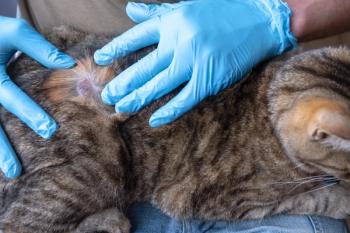
New research reveals 155 regions in canine genome likely influenced by selective breeding
Seattle - Researchers at the University of Washington have scanned the genomes of 275 unrelated dogs to discover what role human selection has had in purebred dogs. In the process, they identified 155 regions that they believe have been affected by selective breeding.
SEATTLE — Researchers at the University of Washington have scanned the genomes of 275 unrelated dogs to discover what role human selection has had in purebred dogs. In the process, they identified 155 regions that they believe have been affected by selective breeding. The results were published recently by the National Academy of Sciences (
What sparked the interest into this particular pursuit of the dog genome?
"All geneticists are interested in DNA sequence variation," says the lead researcher Joshua Akey, an assistant professor of genome sciences at the University of Washington, "and dogs are the most phenotypically diverse species."
The researchers concentrated on 10 distinct breeds — Beagles, Border Collies, Brittanys, Dachshunds, German Shepherds, Greyhounds, Jack Russell Terriers, Labrador Retrievers, Shar-peis and Poodles. They were looking for genes related to the most conspicuous variations, including size, coat color, coat texture, behavior, physiology and skeletal structure.
These attributes achieved their extreme variation in dogs through artificial selection by people only recently in evolutionary terms, even though domesticated dogs have been around almost 15,000 years, says Akey. "The modern breeds were created only 500 to 1,000 years ago."
Researchers found more than 21,000 small variations; the most genetically distinct breeds were German Shepherds, Shar-peis, Beagles and Greyhounds.
The researchers were even surprised that they could narrow in on the target genes of artificial selection so precisely, Akey says. In fact, in eight or nine cases, they were able to pinpoint what is likely the principal gene responsible for a trait. An example? Researchers identified the gene that causes the distinctive wrinkles in the Shar-pei breed.
Speaking of Shar-peis, Akey says the breed is an example of how artificial selection can sometimes be a detriment to dogs. Shar-peis are notoriously prone to skin diseases. Bulldogs and other brachycephalic breeds often have respiratory problems because of their shortened noses. By selecting for certain traits, we humans have inadvertently caused health problems in some dogs, Akey adds.
Artificial selection has been detrimental in another way, according to Akey. Inbreeding has allowed certain rare but harmful genes to become more common than they would have otherwise because of a lack of natural selection in mating. But here's an area in which this research may help. By pinpointing the genes responsible for traits in dogs, especially harmful ones, new diagnostic or treatment methods may be developed. Breeding programs could then help screen out affected dogs and stop the overrepresentation of harmful disease.
The findings in this study will likely help in the work with the human genome as well. In many cases, it may be easier to locate the genetic targets of selection in dogs and then map these targets to related regions in people, he says. Thus, it may ultimately help researchers discover ways to combat genetic variations that result in disease.
"There are surprising parallels between natural selection in humans and artificial selection in dogs," Akey says. For example, genes related to immunity, which undergo a lot of natural selection in people, also had intense artificial selection in dogs.
So, what are the implications for veterinarians?
"In the not-too-distant future, we will have a vastly improved understanding of the genetic basis of canine phenotypic variation," Akey says. And long down the road, veterinarians may have access to an individual dog's complete genome. It's already happening in human medicine. In fact, the goal is to reduce the cost of producing a genome map from the current $10,000 to $1,000. There's no reason that the same can't be true for dogs, Akey adds.
"The question then becomes, 'How would this information (influence) veterinarians' clinical decisions?'"
Newsletter
From exam room tips to practice management insights, get trusted veterinary news delivered straight to your inbox—subscribe to dvm360.





